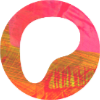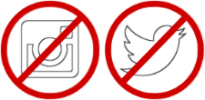Blog / 2024 / Mistake #18: Worrying About Cheating in Art
March 20, 2024
Last spring, I celebrated my twentieth artiversary, and to mark the moment I’ve been blogging about everyday mistakes, things like hiding my queer identity or being on social media.
Today I’m talking about the idea of cheating in art. It’s a discussion that amped up a notch in 2023 as AI image generators evolved more, but it’s an issue that artists have long struggled with.
Which is why I’ve decided to show you the ways I cheat.
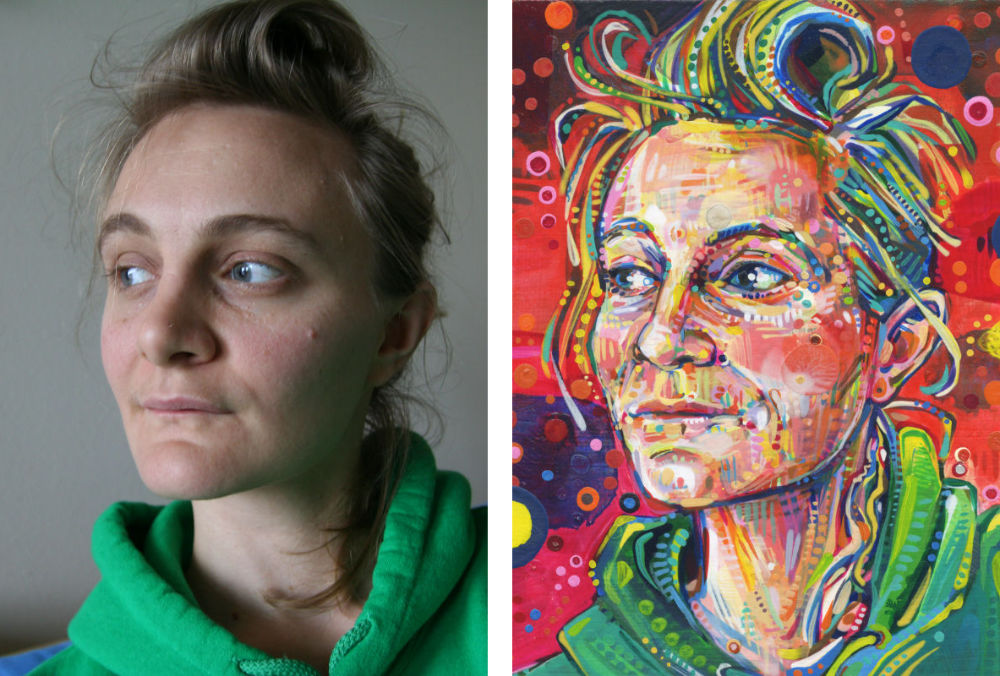
(See full image of Fragile here.)
In order to make all my paintings, I work from photos. I do it because young subjects like this one would never hold still long enough for me to paint them, because it helps me to capture the breath and movement of a person, and because I’ve never even seen a fanfin seadevil or most of the other wild animals I’ve painted. In other words, there are so many good reasons for photography to be a part of my painting practice, but none is better (or more cheaterly) than this one:
Photography flattens the real world in helpful ways.
I don’t have to do as much work thinking about how to make a 3D thing into a 2D thing that still looks 3D, because the camera’s lens has done a lot of it for me.
Today, so many artists use cameras to flatten the world that we forget that the pre-1840s crowd would almost certainly see this as cheating, but it is what it is. Every representational artist who uses the tool of photography gets to skip over the first step in 2D image-making.
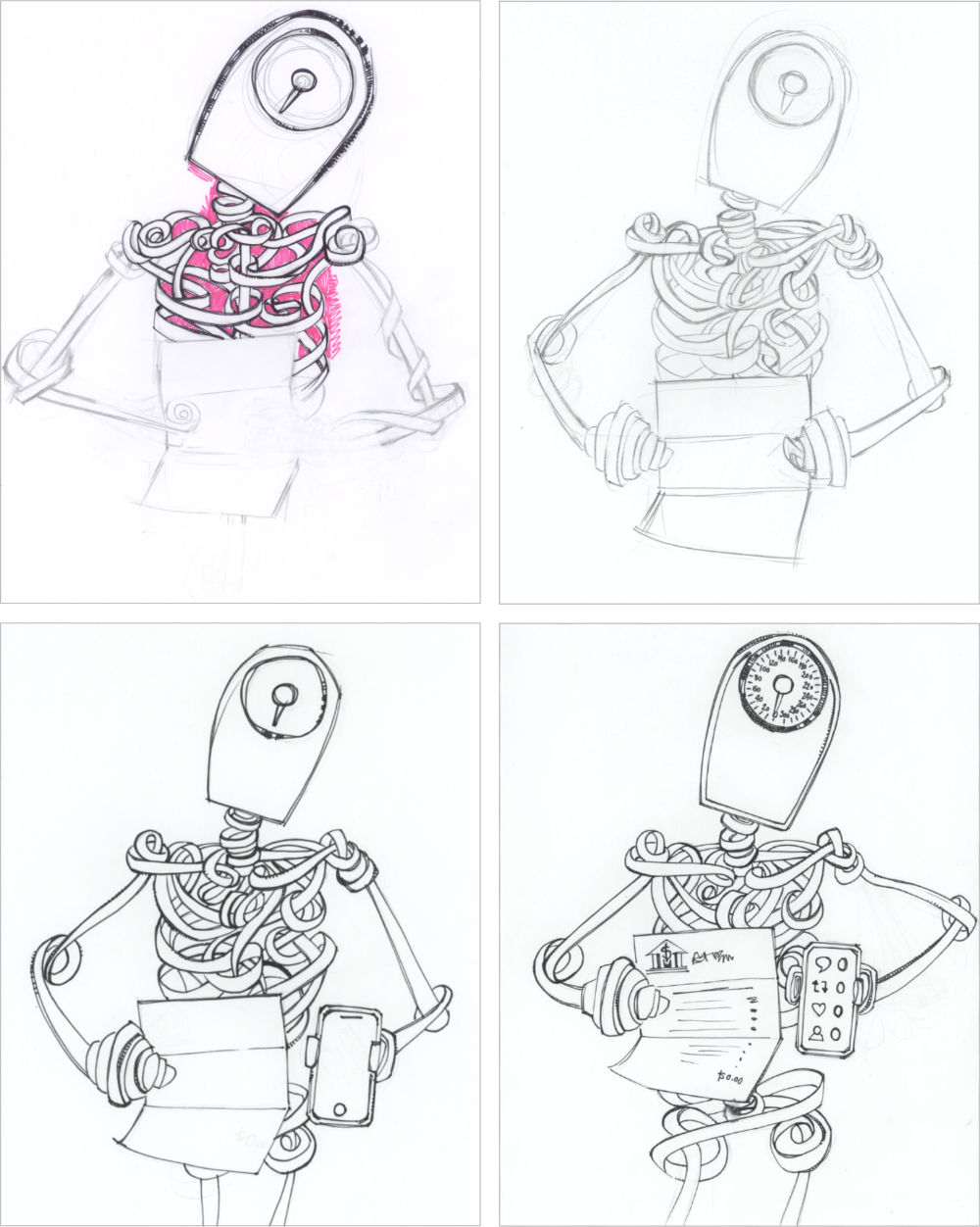
More often than not, the paintings I create also involve at least a bit of tracing. For example, the images above show some of the sketching I did before eventually making this painting. The drawing in the upper left was freehand but the rest were partially traced, because I wanted to avoid redrawing the parts of the image that worked and instead focus on correcting what wasn’t.
Tracing eliminates some of the boring parts of making an image.
It gives artists a way to rework visual ideas more quickly, while also helping them place a subject in a composition as well as get the proportions right. I almost always either trace or use the grid method—which is a kind of tracing that also allows for size adjustment—to start my paintings.
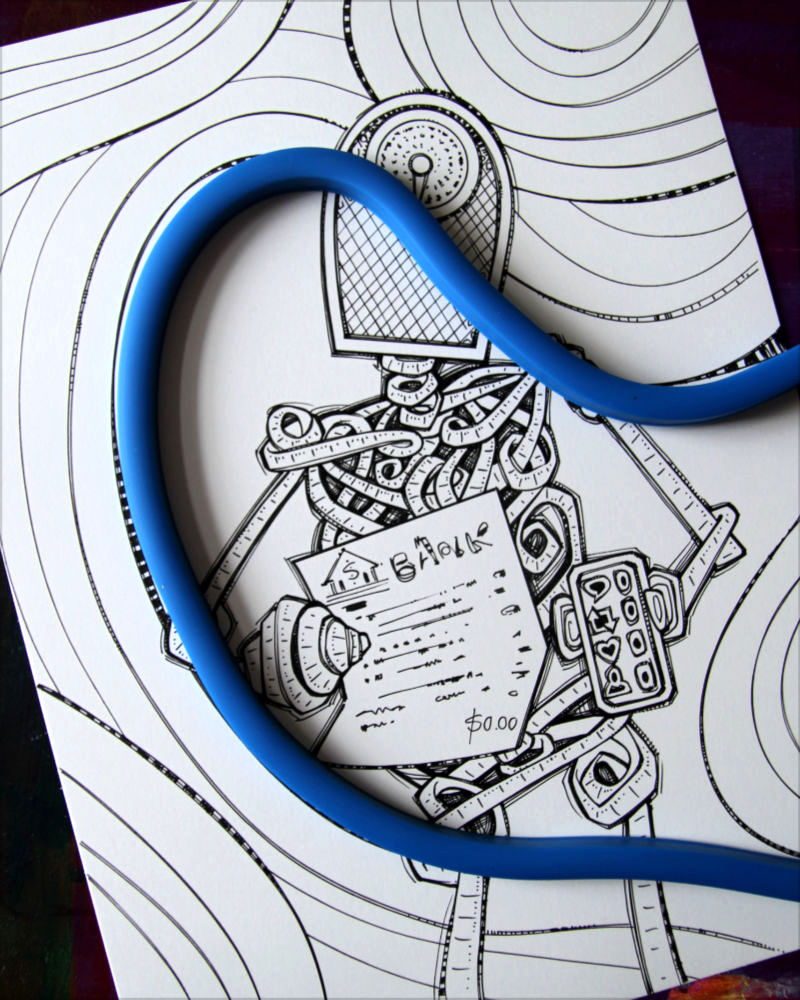
The most recent addition to my cheater repertoire is a bendable ruler. For twenty years, I traced curves from an assortment of plates and container lids to help me make lines similar to those in the background of this coloring book image. (If you want to see what I’m talking about, I use a lid in this process video.) Something about raiding my kitchen for studio tools made the fact that I was drawing with assistance more acceptable. Translation: I told myself that, as long as it was still difficult, it was okay to have help.
The fact is that talking through my feelings about flexible rulers makes the whole conversation about cheating in art sound just as stupid as it actually is.
Because, in the end, the interesting question isn’t about whether or not a particular tool is acceptable. It’s whether or not an artist can make real art with it.
In other words, when people obsess about whether or not an artist is cheating, what they’re really obsessing about is the definition of art. What makes an image or object more than just an image or object? What makes it art? I, for one, suspect it has a lot to do with the humanity of the person making the image or object and how much of themselves they manage to suffuse their work with.
Here are all twenty mistakes I’ve share to celebrate my twenty years as a professional artist:
- Putting off making changes.
- Publishing art that’s not my best.
- Trying to be like everyone else.
- Worrying about being too sensitive.
- Blaming myself for being too nice.
- Confusing bravery with confidence.
- Not realizing that people want me to succeed.
- Hiding my queer identity for years.
- Feeling guilty about wanting to earn money with my art.
- Not asking for help enough.
- People pleasing.
- Being afraid of feedback.
- Not listening enough.
- Believing in the big break.
- Thinking my positivity would make my art better.
- Getting on social media in the first place.
- Expecting my creativity to be linear.
- Worrying about cheating in art.
- Being afraid to start.
- Failing to appreciate my mistakes.
Maybe this post made you think of something you want to share with me? Or perhaps you have a question about my art? I’d love to hear from you!
To receive an email every time I publish a new article or video, sign up for my special mailing list.
If you enjoyed this post, Ko-fi allows you to donate. Every dollar you give is worth a bajillion to me!
